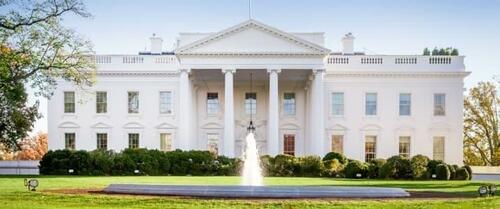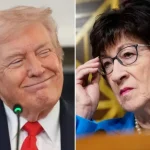
By Tsvetana Paraskova for Oilprice.com
If the U.S. passes the NOPEC bill, a bill designed to pave the way for lawsuits against OPEC members for market manipulation, the oil market could face even more chaos. OPEC’s most influential energy ministers warned against passing the legislation, suggesting it could send oil prices soaring by 200% or 300%.
“The last thing we want is someone trying to hinder that system,” the UAE’s Energy Minister Suhail al-Mazrouei said at a conference in Abu Dhabi, referring to the system OPEC has had in place for decades to ensure supply to the market is adequate (adequate according to OPEC’s view).
“If you hinder that system, you need to watch what you’re asking for, because having a chaotic market you would see … a 200% or 300% increase in the prices that the world cannot handle,” al-Mazrouei said at a panel at the World Utilities Congress hosted by CNBC’s Dan Murphy.
As gasoline prices in America hit record highs, some lawmakers are looking to resurrect the NOPEC legislation that would allow the U.S. Attorney General to sue OPEC or its member states for antitrust behavior.
Forms of a NOPEC bill have been considered in Congress committees for nearly two decades, but they have never moved past committee discussions.
Now OPEC is warning of greater market chaos if NOPEC becomes law. But it’s not only OPEC that has been warning about the implications for America in setting a precedent to remove sovereign immunity. The most powerful oil lobby in the United States, the American Petroleum Institute (API), is also against such legislation, arguing it would bring unintended harm to America’s oil and gas industry and American interests in the world. So is the U.S. Chamber of Commerce, while the White House expressed “concerns” about the potential implications of such a law.
Last week, the U.S. Senate Judiciary Committee approved the so-called No Oil Producing and Exporting Cartels Act (NOPEC).
Forms of antitrust legislation aimed at OPEC were discussed at various times under Presidents George W. Bush and Barack Obama, but they both threatened to veto such legislation.
This time, it’s unclear if the bill would be moved for discussion at the Senate, or then to President Joe Biden’s desk, and it’s unclear whether he would sign such legislation into law.
Commenting on the U.S. Senate Judiciary Committee’s approval of the NOPEC bill, White House Press Secretary Jen Psaki said last week:
“I don’t have an official position on this legislation right now, but we do believe that this potential — the potential implications and unintended consequences of this legislation require further study and deliberation, particularly during this dynamic moment in the global energy markets brought about by President Putin’s invasion of Ukraine.”
“So, we’re taking a look at it and certainly have some concerns about what the potential implications could be,” Psaki added.
Major trade groups have already expressed opposition to the bill, arguing it could backfire on America’s oil and gas industry and U.S. interests.
The bill could have an unintended negative impact on America’s oil and gas industry, the API said in a letter seen by Reuters.
The API has opposed NOPEC legislation during previous discussions of a bill. In 2019, under President Donald Trump, the institute told the then-members of the Senate and House Judiciary Committees, “We see this legislation as creating significant detrimental exposure to U.S. diplomatic, military and business interests while having limited impact on the market concerns driving the legislation.”
“The legislation threatens serious, unintended consequences for the U.S. natural gas and oil industry,” and it “represents a political act aimed at removing a sovereign nation’s litigation immunity from certain U.S. laws and opens the opportunity for reciprocal or even additional action on the part of those impacted countries,” the API said more than two years ago.
Last week, the U.S. Chamber of Commerce addressed the Senate Committee on the Judiciary, saying it opposes the bill known as S. 977.
“Although S. 977 is intended to be limited to restraint of trade in oil, natural gas or petroleum products, the Committee should be wary of the precedent it would create. Once sovereign immunity has been eliminated for one action of a state or its agents, it can be eliminated for all state actions and the actions of agents of the state,” the Chamber of Commerce said.
“Under reciprocal legal regimes, the United States and its agents throughout the world could be tried before foreign courts – perhaps including the military – for any activity that the foreign state wishes to make an offense,” it added.
By Tsvetana Paraskova for Oilprice.com
If the U.S. passes the NOPEC bill, a bill designed to pave the way for lawsuits against OPEC members for market manipulation, the oil market could face even more chaos. OPEC’s most influential energy ministers warned against passing the legislation, suggesting it could send oil prices soaring by 200% or 300%.
“The last thing we want is someone trying to hinder that system,” the UAE’s Energy Minister Suhail al-Mazrouei said at a conference in Abu Dhabi, referring to the system OPEC has had in place for decades to ensure supply to the market is adequate (adequate according to OPEC’s view).
“If you hinder that system, you need to watch what you’re asking for, because having a chaotic market you would see … a 200% or 300% increase in the prices that the world cannot handle,” al-Mazrouei said at a panel at the World Utilities Congress hosted by CNBC’s Dan Murphy.
As gasoline prices in America hit record highs, some lawmakers are looking to resurrect the NOPEC legislation that would allow the U.S. Attorney General to sue OPEC or its member states for antitrust behavior.
Forms of a NOPEC bill have been considered in Congress committees for nearly two decades, but they have never moved past committee discussions.
Now OPEC is warning of greater market chaos if NOPEC becomes law. But it’s not only OPEC that has been warning about the implications for America in setting a precedent to remove sovereign immunity. The most powerful oil lobby in the United States, the American Petroleum Institute (API), is also against such legislation, arguing it would bring unintended harm to America’s oil and gas industry and American interests in the world. So is the U.S. Chamber of Commerce, while the White House expressed “concerns” about the potential implications of such a law.
Last week, the U.S. Senate Judiciary Committee approved the so-called No Oil Producing and Exporting Cartels Act (NOPEC).
Forms of antitrust legislation aimed at OPEC were discussed at various times under Presidents George W. Bush and Barack Obama, but they both threatened to veto such legislation.
This time, it’s unclear if the bill would be moved for discussion at the Senate, or then to President Joe Biden’s desk, and it’s unclear whether he would sign such legislation into law.
Commenting on the U.S. Senate Judiciary Committee’s approval of the NOPEC bill, White House Press Secretary Jen Psaki said last week:
“I don’t have an official position on this legislation right now, but we do believe that this potential — the potential implications and unintended consequences of this legislation require further study and deliberation, particularly during this dynamic moment in the global energy markets brought about by President Putin’s invasion of Ukraine.”
“So, we’re taking a look at it and certainly have some concerns about what the potential implications could be,” Psaki added.
Major trade groups have already expressed opposition to the bill, arguing it could backfire on America’s oil and gas industry and U.S. interests.
The bill could have an unintended negative impact on America’s oil and gas industry, the API said in a letter seen by Reuters.
The API has opposed NOPEC legislation during previous discussions of a bill. In 2019, under President Donald Trump, the institute told the then-members of the Senate and House Judiciary Committees, “We see this legislation as creating significant detrimental exposure to U.S. diplomatic, military and business interests while having limited impact on the market concerns driving the legislation.”
“The legislation threatens serious, unintended consequences for the U.S. natural gas and oil industry,” and it “represents a political act aimed at removing a sovereign nation’s litigation immunity from certain U.S. laws and opens the opportunity for reciprocal or even additional action on the part of those impacted countries,” the API said more than two years ago.
Last week, the U.S. Chamber of Commerce addressed the Senate Committee on the Judiciary, saying it opposes the bill known as S. 977.
“Although S. 977 is intended to be limited to restraint of trade in oil, natural gas or petroleum products, the Committee should be wary of the precedent it would create. Once sovereign immunity has been eliminated for one action of a state or its agents, it can be eliminated for all state actions and the actions of agents of the state,” the Chamber of Commerce said.
“Under reciprocal legal regimes, the United States and its agents throughout the world could be tried before foreign courts – perhaps including the military – for any activity that the foreign state wishes to make an offense,” it added.






